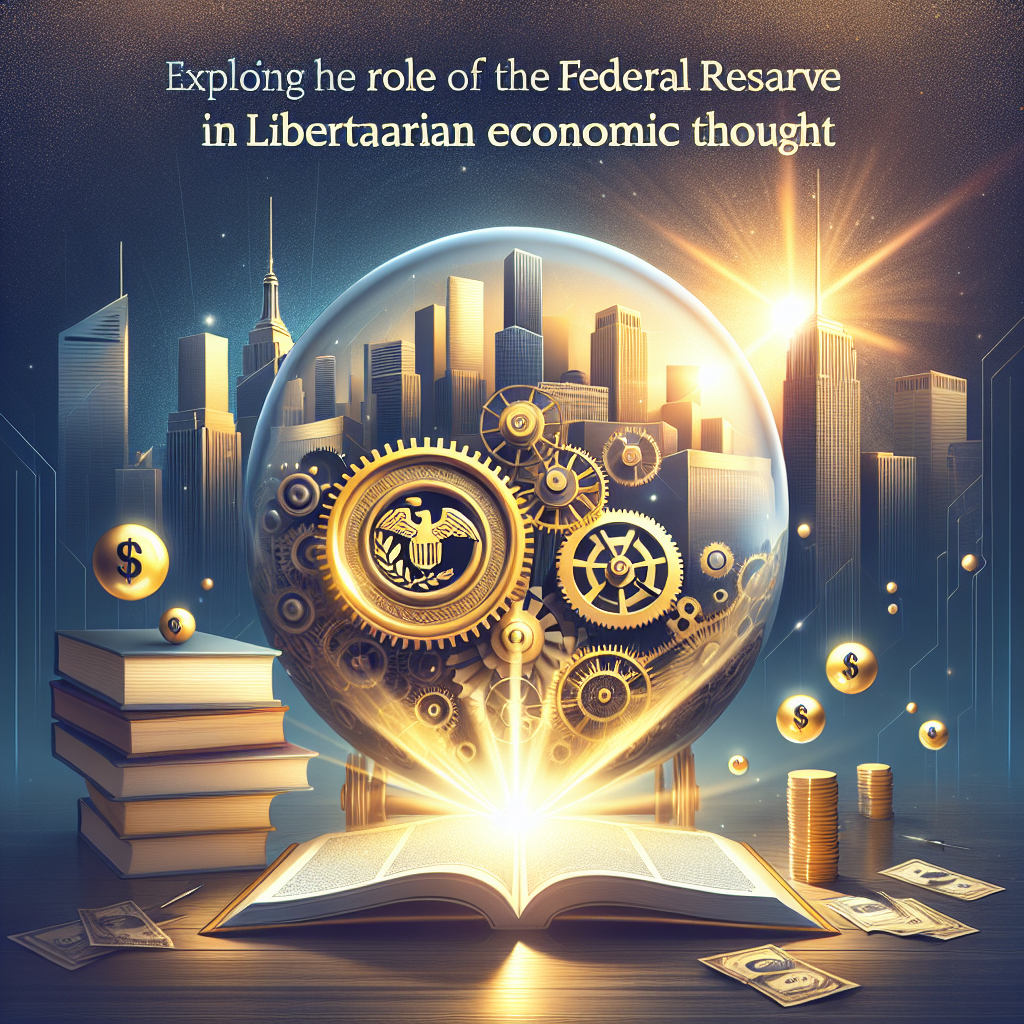Exploring the Role of the Federal Reserve in Libertarian Economic Thought
The Federal Reserve, often referred to as the Fed, plays a pivotal role in the United States’ economic landscape. However, its existence and functions are often critiqued within libertarian economic thought. This article delves into the intricate relationship between the Federal Reserve and libertarianism, exploring key concepts, criticisms, and alternative visions of monetary policy.
Understanding Libertarian Economic Principles
Libertarianism emphasizes individual liberty, free markets, and limited government intervention. Central to this philosophy is the belief that voluntary transactions in a free market lead to more efficient and equitable outcomes. Libertarians advocate for minimal state involvement in personal and economic matters, which presents tensions with institutions like the Federal Reserve.
The Libertarian Perspective on Money
Libertarians typically favor sound money, which is often interpreted as currency backed by tangible assets like gold. The idea is that a stable, non-inflationary currency fosters trust and predictability in economic transactions. In libertarian thought, the Federal Reserve’s ability to print money and influence interest rates is viewed as a means of government overreach that distorts market signals.
The Federal Reserve: An Overview
Before delving into libertarian criticisms, it’s crucial to understand the role of the Federal Reserve. Established in 1913, the Fed’s primary functions include:
- Regulating the money supply: Controlling inflation and stabilizing prices.
- Supervising and regulating banks: Ensuring the safety and soundness of the financial system.
- Serving as a lender of last resort: Providing liquidity to banks during times of financial crises.
While these functions aim to promote economic stability, they often attract skepticism from libertarians who argue these policies lead to unintended consequences.
Inflation: A Libertarian Concern
Inflation is a significant point of contention for libertarians when discussing the Federal Reserve. They argue that the central bank’s monetary policy, particularly its practice of quantitative easing and low-interest rates, leads to inflationary pressures that erode purchasing power. Libertarians contend that such inflation disproportionately affects lower-income individuals and distorts savings, creating a more unstable economy.
Critiques of the Federal Reserve from a Libertarian Lens
Central Planning vs. Market Signals
Libertarians criticize the Federal Reserve for its central planning approach to monetary policy. They argue that manipulating interest rates and money supply interferes with natural market signals, leading to misallocations of resources. The belief is that markets, when left to operate freely, will self-correct and allocate resources more efficiently.
Moral Hazard and Financial Stability
Another libertarian critique involves the concept of moral hazard. By acting as a lender of last resort, the Federal Reserve may inadvertently encourage reckless behavior among banks, knowing they can rely on the Fed during crises. This could lead to risky lending practices and contribute to financial instability, raising concerns about the long-term sustainability of such an approach.
The Case for Decentralized Money
Libertarian theorists often advocate for alternative monetary systems that minimize or eliminate the Fed’s influence. Proposals such as cryptocurrency, gold standards, or local currencies present options that align more closely with libertarian ideals. These decentralized approaches could potentially foster competition in currency issuance and enhance overall economic resilience.
The Future of Monetary Policy in a Libertarian Context
Reforms within the Federal Reserve
Some libertarians argue for reform rather than abolition of the Federal Reserve. Suggestions include imposing strict limits on the Fed’s ability to create money or requiring greater transparency in its decision-making processes. These reforms aim to balance the need for some regulatory oversight with a preference for free-market principles.
Embracing Cryptocurrency and Digital Assets
The rise of cryptocurrency offers a compelling alternative to traditional monetary systems. Libertarians often view digital currencies as a means of escaping government-controlled monetary policy. Advocates argue that cryptocurrencies can enable transactions that are free from inflationary pressures, thereby aligning with libertarian ideals of personal autonomy and economic freedom.
Conclusion
The Federal Reserve remains a cornerstone of the U.S. economy, but its existence continues to be a controversial topic within libertarian economic thought. The critiques from this perspective emphasize the importance of sound money, market signals, and the risks associated with central planning. As economic landscapes evolve, the dialogue between the Federal Reserve and libertarian principles is likely to continue, prompting ongoing discussions about the future of money and economic policy.
By understanding these complexities, readers can better appreciate the nuanced viewpoints on the intersection of federal monetary policy and libertarian economic philosophy.
Share this content:












Post Comment